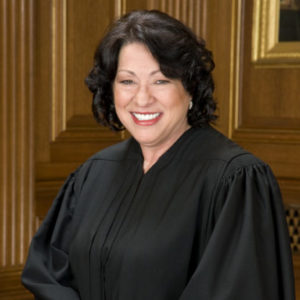In a 5-4 decision, the Supreme Court of the United States ruled private entities are not bound by the First Amendment when they offer services that are not traditionally and exclusively offered by government entities.
The ruling may set a precedent for social media platforms like Facebook, Twitter and YouTube to continue to censor, block and prioritize speech and content as they see fit.
Here’s the backstory: since the 1970s, both private and public (government) entities have operated public access channels on cable television. In the early 90s, the Manhattan Neighborhood Network (MNN), a private company, began to operate Time Warner Cable’s public access channels for the city of Manhattan. MNN employees DeeDee Halleck and Jesus Papoleto Melendez produced a film criticizing MNN, and after MNN televised the film, suspended Halleck and Melendez. Halleck sued, claiming her First Amendment rights.
Justice Brett Kavanaugh (a conservative appointed by Trump) wrote the opinion of the majority, arguing that even though MNN was a “state actor” performing a public function for the city, governments don’t traditionally and exclusively provide television channels, so MNN was not bound by the First Amendment.
“The relevant function in this case — operation of public access channels on a cable system—has not traditionally and exclusively been performed by government,” Kavanaugh wrote. “The Court has stressed that ‘very few’ functions fall into that category.”
Justice Sonia Sotomayor (an Obama liberal) sharply disagreed, pointing out that in the past, SCOTUS has always considered private entities liable to the Constitution if they take over a function for the state. SCOTUS even set a precedent for that in its 1988 West v. Atkins decision, Sotomayor argued.
“The Court in West unanimously held that a doctor hired to provide medical care to state prisoners was a state actor,” Sotomayor wrote, referencing the opinion of former Justice Antonin Scalia, a conservative. “Each State must provide medical care to prisoners, the Court explained, and when a State hires a private doctor to do that job, the doctor becomes a state actor, “‘clothed with the authority of state law.'” If a doctor hired by the State abuses his role, the harm is ’caused, in the sense relevant for state-action inquiry,’ by the State’s having incarcerated the prisoner and put his medical care in that doctor’s hands. The fact that the doctor was a private contractor, the Court emphasized, made no difference.”
So what does this mean for Big Tech? According to one lawyer, David Duncan with Zalkind, Duncan and Bernstein, social media platforms are not and never have been bound by the First Amendment, regardless of this SCOTUS decision.
“Anybody who thinks that Facebook is subject to the First Amendment is just wrong, they never have been,” Duncan told InsideSources. “[The Constitution] is very clearly addressed to state acton and state public forums, and Facebook never has been.”
Even though platforms like Facebook, Twitter and YouTube technically serve as public forums for speech, no government gave those platforms this responsibility, so in Duncan’s view, the “state actor” argument doesn’t apply.
“The debate is, is a private entity operating like a public utility, or [is it] managing a public space on behalf of the government,” Duncan said. “Where is the line in public/private kind of partnerships going to be drawn between what’s a state action and what’s not a state action? This is a case where I would say the dissent is correct, but we’re talking abut line-drawing. It’s really almost a question of how do you characterize these things.”
Silicon Valley seemed heavily invested in SCOTUS’ decision. The Internet Association — a lobbying group of which Amazon, Google, Facebook and Twitter are members — filed an amicus brief in December 2018 encouraging “this Court to limit its decision to the unique facts of this case so that its decision does not unintentionally disrupt the modern, innovative internet.”
Later in the brief, the Internet Association added, “this Court should make clear that private property will be deemed a public forum, and the regulation of private property will be deemed a ‘public function,’ only in extraordinary circumstances,” suggesting Big Tech companies worry about setting a precedent that would bind them to the First Amendment when moderating content on their platforms.
The Electronic Frontier Foundation, a Silicon-Valley-based think tank, also filed an amicus brief in December 2018 and also called on SCOTUS to “rule narrowly, and with an eye toward the application of its ruling in other contexts,” specifically referencing internet companies.

